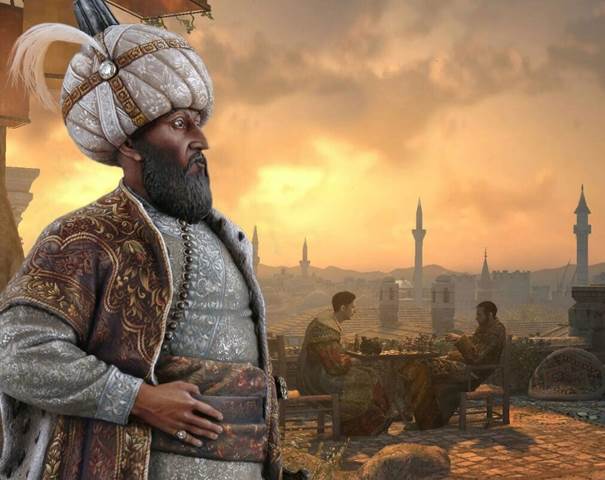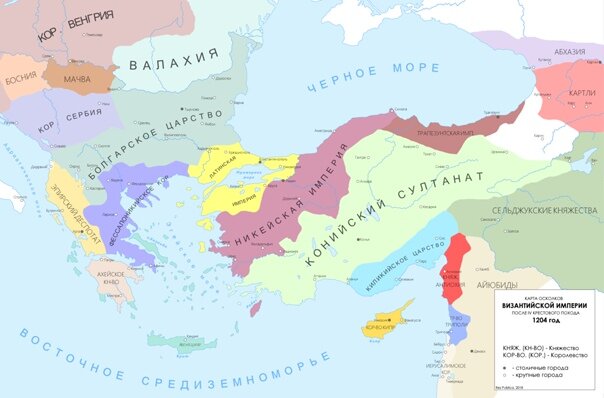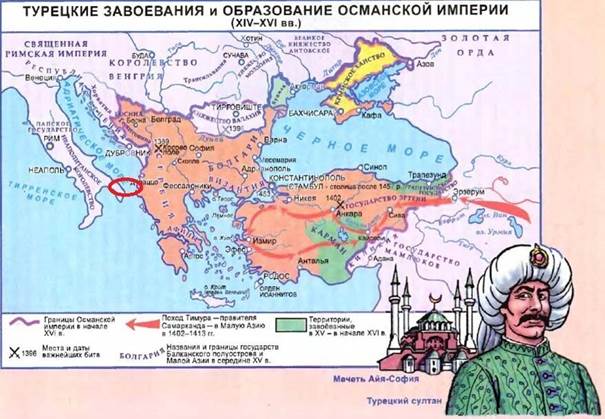Why didn’t the Turks switch to Greek, even though the Germanic barbarians in the west had switched to Latin?
If a small but proud barbarian people conquers the territory of a large and developed state, they usually either assimilate completely or retain their name but adopt a new culture and language. This was the case with the fall of the Roman Empire, when the Franks conquered Gaul, the Visigoths conquered Spain, and the Ostrogoths conquered Italy, but their descendants switched to vernacular Latin within a few generations. This was the case when China was conquered by the Turks, the Jurchens, the Mongols, the Manchus – and where are they all now?

But with the Seljuk Turks and their descendants such as the Ottomans, things turned out differently. They conquered and absorbed all the possessions of Byzantium, but did not switch to Greek. But why?
When much of eastern Rome fell to the Arabs, the Byzantines were forced to gain a foothold in Anatolia, the eastern part of which was a continuous mountain range. A line of fortresses was erected, but the Muslims still made campaigns to the peninsula (although more likely raids) almost every year. This led to an outflow of the population to the west.
In 1071, the Seljuks defeated the army of Constantinople at the Battle of Manzikert, and took this strategy to a new level. Raids were no longer annual, but incessant throughout the year, albeit in relatively small groups. But when one returned home with the loot, other ghazi went in the opposite direction.

The European Crusaders then returned part of the peninsula to the Greeks, but Central and Eastern Anatolia had already been considerably devastated. There was no one there except the Seljuk nomads, who numerically dominated the remaining Greek population. And if not numerically, then militarily and politically.
The Seljuk sultans were well aware of their lack of human resources, and therefore began to colonize the region at the expense of the Muslims – Kurds, Persians and Arabs. The former inhabited the countryside, but the latter preferred the cities. Their descendants, a few generations later, spoke the more prestigious Turkic.
The Seljuks repeated similar tactics until they absorbed the entire Asian half of Byzantium. And yet, the Greek language still had a chance, if not for one “but”, which was the Mongol invasion. This led to the migration of huge waves of Oguzo-Turkmen tribes from Central Asia, the closest relatives of the Seljuks, who had previously remained in their historical homeland.

As a result, the number of Greeks and Turks in Anatolia became approximately equal. Well, not equally, of course, but when Greek Christians converted to Islam, they also changed the language they already knew—the Turks had been their masters for centuries.
And one more important point that concerns culture. Western barbarians switched to vernacular Latin, which became the basis of Italian, Spanish, and French, along with the Christian religion and Roman culture. But the Seljuks first conquered Iran, and it was the Persians who were the first people to introduce them to the achievements of civilization. When they came to the borders of Byzantium, they were no longer barbarians, but representatives of the Islamic world, which was at the peak of its development at that time.
Islam, on the other hand, has a slightly different attitude to languages: Arabic was reserved for religion, Persian dominated science and literature, but the mother tongue, in this case, Turkish, retained its role in everyday life. Throughout the east, it became the language of an army that was almost exclusively Turkic.

Greek, on the other hand, was considered the language not only of the people, but also of the Orthodox faith, and therefore there was no place for it in the Muslim world. Therefore, the Seljuk, and even more so, the Ottoman sultans, strictly monitored that the Byzantines, after their conversion to Islam, switched to Turkish. This was relatively easy because they already knew the language of their conquerors. And given that there were already many Turkic-speaking Muslims around, they had someone to talk to.
